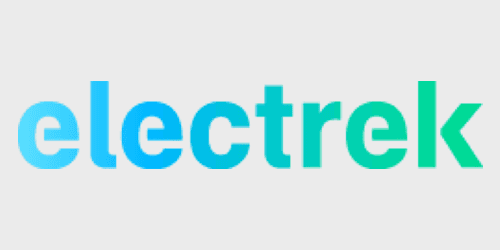
Canoo, a California-based startup that basically spun out of Faraday Future, has unveiled its first electric vehicle, but they also announced that you will never be able to buy it.
They will offer the vehicle under a monthly “subscription” program only.
As we previously reported, Stefan Krause, former BMW and Deutsche Bank CFO, and BMW’s head of EVs, Ulrich Kranz, were two of Faraday Future’s top executives until leaving 2 years ago to launch their own EV startup and bring several other FF employees with them.
At the time, sources told Electrek that Krause was able to raise funds for his new startup using the groundwork that he had done on the previous deals that he tried to close for FF, but that ended up failing due to disagreements with Jia Yueting, FF’s main financial backer who was in control of the company until recently stepping down.
FF later ended up suing Canoo, known as EVelozcity at the time, over alleged thefts of confidential information and poaching employees while still working at the startup.
This didn’t slow down the new startup, which claimed to have managed to raise $1 billion last year.
Now, two years after founding the company, Canoo is ready to unveil its first electric vehicle and it plans to offer it under a “subscription-only” model.
First off, the vehicle. It’s simply called canoo.
They didn’t go too deep into the specs of the vehicle and instead only said that “it has an approximate range of 250 miles (EPA rating) and can reach an 80% charge in less than 30 minutes.”
Let’s talk about the design right away because it’s probably the most novel thing about this vehicle.
Here are a few pictures of the exterior of the canoo:
As you can see, it looks nothing like a conventional vehicle, but that’s nothing. Wait until you see the interior.
Canoo built the vehicle around autonomy. It is equipped with seven cameras, five radars, and 12 ultrasonic sensors and the company believes that it is futureproofed for full autonomy through software updates, like Tesla’s approach, but it currently supports “level 2 autonomy”, which basically amounts to intelligent driver-assist systems.
With that in mind, take a look at the interior of the canoo electric vehicle:
If you are having some dificulties understanding how that kind of design work in practice, you are not alone.
Canoo did release some “lifestyle” pictures with people using the vehicle to give you an idea of what that would look like:
As you can see, there’s no screen. Canoo believes that users will prefer using their own devices and therefore, things like entertainment (music, etc.) and navigation will run off the users’ own devices.
Richard Kim, former head of design at FF and now in charge of design at Canoo, commented on the company’s approach:
“Cars always have been designed to convey a certain image and emotion; however, we chose to completely rethink car design and focus on what future users will actually need. Thus, we came up with this loft-inspired vehicle. When you subscribe, you think differently about a car – now the value is defined by the user benefit. We implemented the Bauhaus philosophy, which is centered around minimalism and functionality, and started with the reduction to the absolute minimal need. Next, we applied that approach to the seamless connectivity with the personal devices customers care most about – their phones.”
Here are a few other interesting things about the canoo.
Interestingly, the company does claim that the canoo is going to be “the first true steer-by-wire vehicle on the market without a hardware connection between the steering wheel and wheels.” In other words, it’s going to be entirely controlled by electric signals.
They say that it’s going to be useful for autonomous driving and in the meantime, it’s going to allow for more responsive steering.
Based on the interior design, it also looks like they could simply remove the dashboard, steering and pedals to make more room when (or if) they reach full autonomy.
Canoo says that it now embarking in a testing program with some “beta prototypes” and they plan to start offering the production version for subscription, starting in Los Angeles, in 2021.
FTC: We use income earning auto affiliate links. More.






Comments